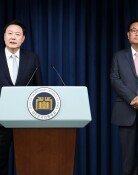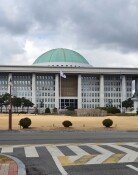Pyongyang Condo Prices Quadruple
Cheon, a North Korean citizen, recently purchased a private luxurious condominium instead of a national housing space. A housing trade license will be issued to him soon.
North Korea has not allowed private ownership of housings in the past, but it started to build apartment complexes for purchase and sale in Pyongyang in 2004, and in main cities in provincial areas in late 2005.
The primary development areas include the outskirts of Pyongyang in Pyongchon, and regions near the Botong River and Mankyongdae. Some provincial areas that have good transportation and commercial conditions like Haean-dong and Dongmyongsan-dong, Wonsan, Gangwon Province, Pohang and Sinam of Chongjin, North Hamkyong Province, Yokjon-dong, Sineuiju, North Pyongan Province have also seen condominium development.
The process of condo-apartment construction and pre-sales in the North is almost same as that of capitalist societies.
State-run companies, whose self-support system functions were strengthened with the introduction of North Koreas July 1 measure for better economic management in 2002, construct and pre-sell North Koreas condos. They search for construction lots and then purchase one-story houses on the lot. At present, it is not difficult to purchase those houses even if they are state-owned, as almost all of them are priced at market value. They are sold to individual buyers.
A company based in Chongjin mobilized well-to-do individual creditors and Chinese capital last summer and built a five-story, 10-unit apartment complex in just three months. The company gave one of the units to a high-ranking officer free of charge on state orders and earned huge profits by selling each of remaining nine units at $5,000, almost triple the original unit price.
That being the case, rumors are rampant across the country that building and pre-sales of condominium units will be new business items and the overriding theme in the North Korean business sector.
Behind the invigorated condo business lies a change in perception of North Koreans, who have begun to regard housing as a means for wealth management. Over the past few years in the North, there has been a brisk trade and a rapid increase in prices of units of condos. The price of a 15-pyeong apartment unit in District A of Pyongyang, known to have favorable transportation conditions, quadrupled from $2,000 to $8,000 over the last two years. (One pyeong is equivalent to 3.954 square yards.) The situation is not much different in provincial areas.
The most significant contributor to the condo boom, however, are the North Korean authorities that turn a blind eye to the situation. After all, who would control whom?
zsh75@donga.com
Headline News
- Med professors announce intention to leave hospitals starting Thursday
- Bridge honoring Sgt. Moon Jae-sik unveiled in Pennsylvania
- Chief of Staff Chung tells presidential secretaries to stay away from politics
- US FTC bans noncompete agreements
- N. Korea launches cyberattacks on S. Korea's defense companies







